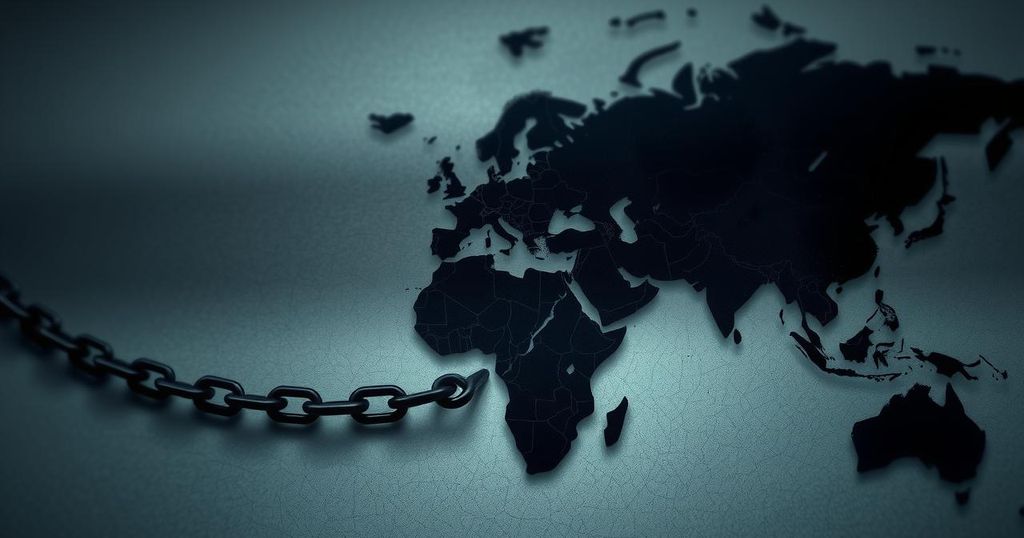Hamas Leaders and Pakistan’s Intent to Use Jammu and Kashmir as a Jihad Base
Indian intelligence reports an influx of 80-100 foreign terrorists in Jammu and Kashmir this summer, coinciding with Kashmir Solidarity Day, a day used by Pakistan to promote anti-India sentiments. Pakistani officials and extremist leaders, including Hamas representatives, have united to reinforce jihadist narratives, signaling a troubling alignment between these groups. As Pakistan grapples with internal strife, it leverages the Kashmir issue as a diversionary tactic, while India remains vigilant in its counter-terrorism efforts.
In recent reports, Indian intelligence has uncovered a gathering of approximately 80 to 100 foreign terrorists at launch pads in Jammu and Kashmir, indicating potential trouble for India this summer. This situation coincides with Kashmir Solidarity Day on February 5, a significant day orchestrated by Pakistan to promote its vision of Jammu and Kashmir as an Islamic territory. Since 2004, Pakistani leaders and extremists have utilized this event to propagate anti-Indian sentiments and rally support for their cause, despite India’s revocation of Articles 370 and 35A in 2019.
As internal stability in Jammu and Kashmir improves, highlighted by a decrease in terror incidents, Pakistani officials, including Prime Minister Shehbaz Sharif and Army Chief Syed Asim Munir, have intensified their efforts to reignite tensions. Notably, a rally in Rawalkot saw the participation of prominent Hamas figures along with key terrorist leaders from groups such as Jaish-e-Mohammed and Lashkar-e-Taiba, signaling an attempt to establish a joint front for Islamist jihad in both Kashmir and Palestine.
The conference, titled “Kashmir Solidarity and Hamas Operation Al Aqsa Flood,” underscores a collaborative jihad narrative between Pakistan and Hamas that seeks to unify Muslim communities against perceived enemies such as India and Israel. The association of Pakistani terrorists with Hamas highlights a diversification in extremist strategies aimed at increasing local jihadist recruitment in Pakistani-administered Kashmir, as native support for these groups continues to diminish amidst local dissent.
Pakistan’s political leaders are utilizing the Kashmir issue to distract from significant domestic challenges, including economic hardship and political instability. The rhetoric surrounding Kashmir serves as a political maneuver, while simultaneously, the radicalization tactics employed both by Hamas and local jihadists reinforce Pakistan’s image as a promoter of global jihad, detracting from its credibility on the international stage.
Moreover, the commitment of Hamas leaders to align with Pakistani jihadists denotes a strategy to bolster recruitment among militants in Occupied Kashmir and neighboring regions, an effort complicated by a growing local resistance against both Pakistani authority and advancing Islamic extremism. As global political dynamics shift with changing attitudes in the United States towards Pakistan, India remains vigilant, ready to counter aggression with demonstrated force, as evidenced by operations like Surgical Strikes and Operation Bandar.
The article discusses the rising tensions in Jammu and Kashmir, particularly the actions of Pakistani leaders and organizations in their ongoing attempts to incite unrest in the region under the guise of supporting Kashmiri independence. It provides context on Kashmir Solidarity Day, marked annually by Pakistan, to rally nationalist sentiment and promote jihadist ideologies. The emergence of foreign jihadists in the area, in conjunction with organized efforts led by Hamas and local terror groups, illustrates a significant collaboration in Islamist extremism aimed at destabilizing India further. Previously, the region had seen improved conditions following the abrogation of special status in 2019, with terrorist activities reportedly declining. However, recent gatherings of foreign militants signal an ominous trend suggesting an influx of violence spurred by ongoing geopolitical movements in South Asia, as Pakistan seeks to reignite the Kashmir issue on the international agenda, particularly with upcoming diplomatic engagements involving the United States and India.
In conclusion, the events surrounding Kashmir Solidarity Day and the collaboration between Hamas and Pakistani terrorist leaders represent a disturbing escalation in coordinated jihadist efforts against India. As these actors seek to manipulate the Kashmir narrative while facing internal dissent, the Indian government remains resolute in its counter-terrorism strategies. With a firm stance on safeguarding national security, India is prepared to respond effectively to any external threats posed by this renewed campaign of aggression, demonstrating its commitment to maintaining stability in the region.
Original Source: www.hindustantimes.com








Post Comment